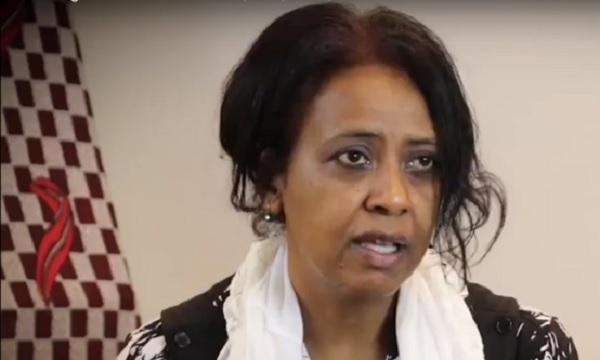
Kampala, Uganda | ISAAC KHISA | Hala Al-Karib is the regional director for the Strategic Initiative for Women in the Horn of Africa (SIHA), an organization that seeks to unlock potential of women’s rights movement. She spoke to The Independent’s Isaac Khisa about street vending in Kampala.
What is your management style as the ED?
I am a hands-on person and accessible to all people – workmates and beneficiaries. I am openly biased towards women and their interests.
What is your assessment of street vending in Kampala compared with other cities?
Street vending is one of the oldest occupations by both women and men on the African continent. It has always been respected socially, and considered a decent and honourable way to earn a living especially for women. The rapid increase of street vending especially by women reflects the changing socio- economic situation prevailing in Uganda and across the region.
On August 17, your organisation unveiled a book and a documentary titled “The Invisible Laborers of Kampala – Women in Uganda’s informal sector“. What informed your decision to come up with the book and documentary?
We have a project to support street women vendors, and involves having them speak about their challenges, problems, and how to resolve them in one voice. The sole purpose of the book and documentary that comes from our recent research is show the plight of women street vendors to policy makers and other stakeholders. We intended to show, based on evidence, that women street vendors are actually productive member of society. We wanted to show that the women who engage in street vending are actually decent and beautiful people and that they try to earn a living in a decent way. They are not criminals. They simply do not have any other alternative to support their families. Our research shows that most of these street vendors are single mothers trying to fend for their families. We therefore really appreciate efforts to beautify the city but they should also take into consideration of the people living in it.
Kampala Capital City Authority allowed street vendors to sale their merchandise on specific streets on Sundays and in the evening week days. Isn’t that enough time for them to do business?
That time is not enough. This is because most of them who simply sale bananas and a few other products actually make very little earnings.
I think we need to look for a means to ensure that these traders carry on their businesses comfortably, grow their business and eventually leave the streets.
What is your view on the way KCCA deals with street vendors?
It is heartbreaking. It is very depressing…seeing their goods confiscated. I remember one woman running, her clothes falling as she was trying to escape enforcement officers.
How can street vendors co-exist with the street vendors in Kampala City?
This issue of women involving in street vending is all over Africa and has been as a result of failure to invest in rural areas. Ideally, cities should move to villages. This is in terms of provision of similar services– infrastructure, health among others – as it is in the cities. The absence of these amenities in rural areas has therefore forced much of the population across the continent with no option but to move in masses to the peripheries of cities including Kampala. Regrettably, these very cities have nothing much to offer.
With this situation at hand, there’s now need to negotiate the existence of women street vendors and the authorities.
It is also important to come up with training programmes, skills developments as well as subsidy programmes to see that these street vendors can grow their business and eventually leave their streets.
What have you done as SIHA to change this situation? How would you advise government and more specifically KCCA on how deal with the issue of street vendors?
We are now trying to organize women street vendors into cooperatives. We believe that cooperatives are very unique in a sense that they allow members to contribute to the pool, save and be able to borrow to finance their businesses.
We hope that this is an opportunity for the government to design programs and also come up with subsidies to support these street women.
It is unfortunate that we have women who have been street vendors for more than 15 years and there’s nothing for them to show. There’s no savings. We do not want to see women continuing to be street vendors.
What are some of the challenges, if any, that your organization face as it strives to achieve its goals?
One of the biggest challenges that SIHA faces in achieving our mandate of supporting the rights of marginalized women and increasing their access to decision-making, is the high expectation that the women have in the organization. The broader understanding that the women have of organizations coming to equip them with skills for the betterment of their livelihoods, is that there are financial hand-outs for them to receive – due to the fact that poverty pushes them to such expectations. That said though, we are positive that the skills accorded to these women will drive them to better support their livelihood whilst building their organizational, networking and leadership skills for better advocacy purposes.
 The Independent Uganda: You get the Truth we Pay the Price
The Independent Uganda: You get the Truth we Pay the Price



